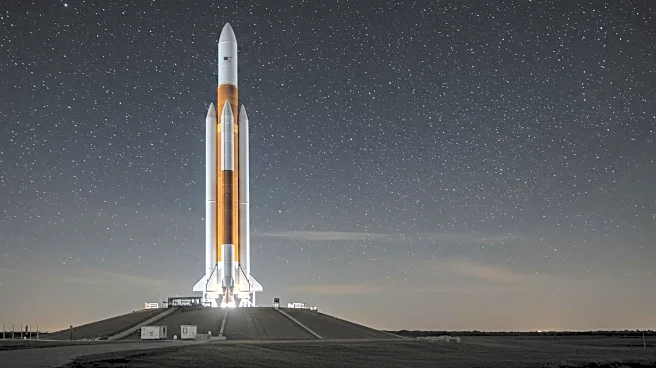What's Happening?
Blue Origin's New Shepard NS-35 mission, originally scheduled for August 23, 2025, has been delayed due to an issue with the booster’s avionics. The uncrewed mission was set to carry over 40 scientific and research payloads, including experiments from NASA's TechRise Student Challenge and other organizations. The mission aims to provide over three minutes of microgravity for various experiments. The launch was to take place from Launch Site One in West Texas, with a webcast planned to begin 15 minutes before liftoff.
Why It's Important?
The delay of the NS-35 mission impacts several scientific and educational initiatives, including NASA's TechRise Student Challenge, which provides hands-on opportunities for students to engage in space-related experiments. The mission is part of Blue Origin's efforts to advance space research and inspire future generations of space explorers. The delay highlights the technical challenges involved in space missions and the importance of ensuring safety and reliability in aerospace operations.
What's Next?
Blue Origin will address the avionics issue and announce a new launch date for the NS-35 mission. The company will continue to collaborate with NASA and other organizations to support scientific research and educational programs. Stakeholders, including students and researchers, will await the rescheduled launch to conduct their experiments in microgravity.
Beyond the Headlines
The delay underscores the complexities of space missions and the need for rigorous testing and troubleshooting. It also highlights the growing role of private companies like Blue Origin in advancing space exploration and research. The mission's educational component reflects the increasing emphasis on STEM education and the importance of inspiring the next generation of scientists and engineers.










